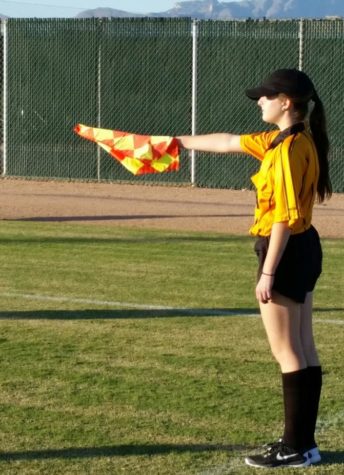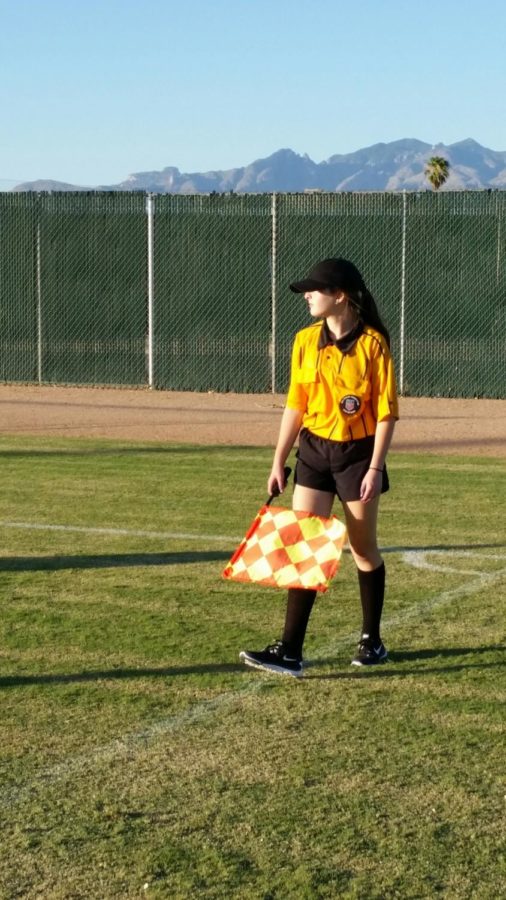The Life of a Soccer Referee – Me
November 7, 2017
Ever wonder what it’s like to be the opposite of a player? What about the core of the game? Well, that is what it’s like to be a referee. I have been a soccer referee for a year, going on two this year. Being a referee IS a job and, yes, you DO get paid. Not only that, but you get to work around your own schedule! For the most part, you choose which games you would like to work, but there are occasions where some games are assigned to you mostly because there’s a tournament. Also, there are different age groups and the payments range due to those ages. The younger games are more simplistic and shorter, but the older kids, from age 12 and up, is where it gets a little more serious. As the ages grow, the kids play rougher, the parents become more stubborn, the calls and gameplay are more intense, and you, as a referee, must be more diligent and aware. Some key traits to be a referee include patience, keen focus, the mindset of a role model, self control for any parents or coaches who lash out, and knowledge.
Although some may look at it as waving a flag around and blowing a whistle, there is so much more to it than just that. To become a soccer referee, you have to go through a series of online courses to learn the calls, rules, and safety laws. All kinds of referees must take the online and hands-on training, including concussion courses teaching you how to handle a (possible) concussion and the proper signals for the proper actions to be taken during a game. To be an assistant referee, the person on the sideline with a flag, you must learn how to hold the flag, where/when you need to point it, what the calls mean, and many other things. To be a center referee, you must learn the different calls, how to blow the whistle, what type of whistle blows go with which calls, when and how to card a player, and lots of other precautions and lessons. Personally, I thought the training was stressful because of how badly I wanted to become a referee and everything I was trying to remember at once, but the concussion training was really great. I feel safer knowing the symptoms and what to do if you get a concussion; plus I can always help someone that might have a concussion.
One thing I love about being a referee is the fact that I work with someone new almost every game. I like getting to know new people, and it helps with my social skills. The constructive criticism is always nice, too; that way, I will know what I will need to look out for or fix for the next game. I mostly work with adults, but every once in a while, a kid around my age is working with me and we always have a lot to talk about. I like to believe refereeing has helped me be more talkative and ask questions when I have them.
Being a referee has definitely changed my life for the better. It has helped me manage my time, taught me leadership skills, helped me grow fonder of the soccer laws and rules (which helps with my gameplay), and has taught me how to be more talkative and less awkward. Plus, refereeing is a really fun and hard-working way to earn some cash! I have become more fond of the soccer rules, such as offside and free kicks, ever since I began refereeing, which has helped me a lot when playing soccer. It has also helped me stay patient and calm instead of retorting back at parents, coaches, or even players. Being a referee has made me better as a person and as a soccer player.












